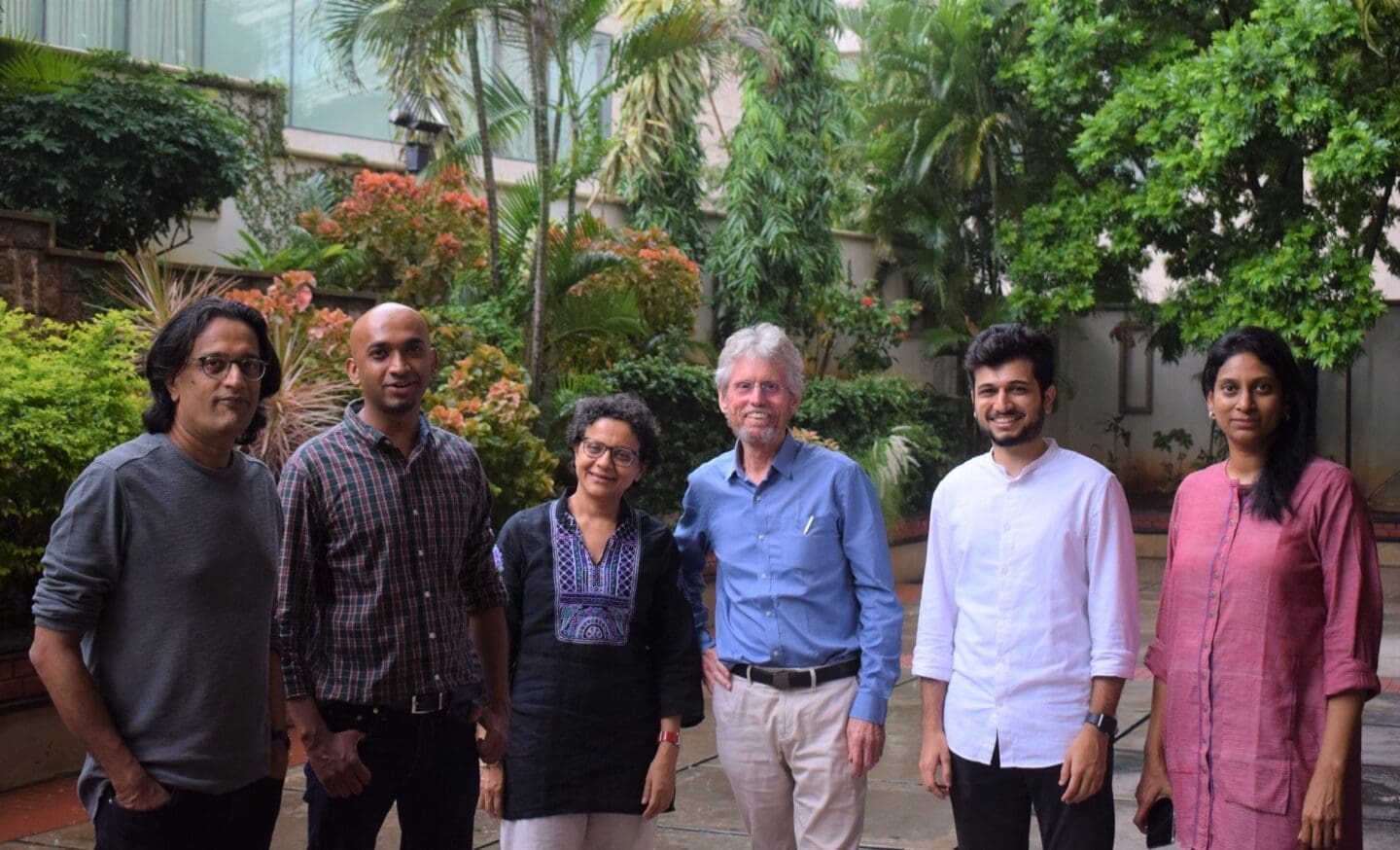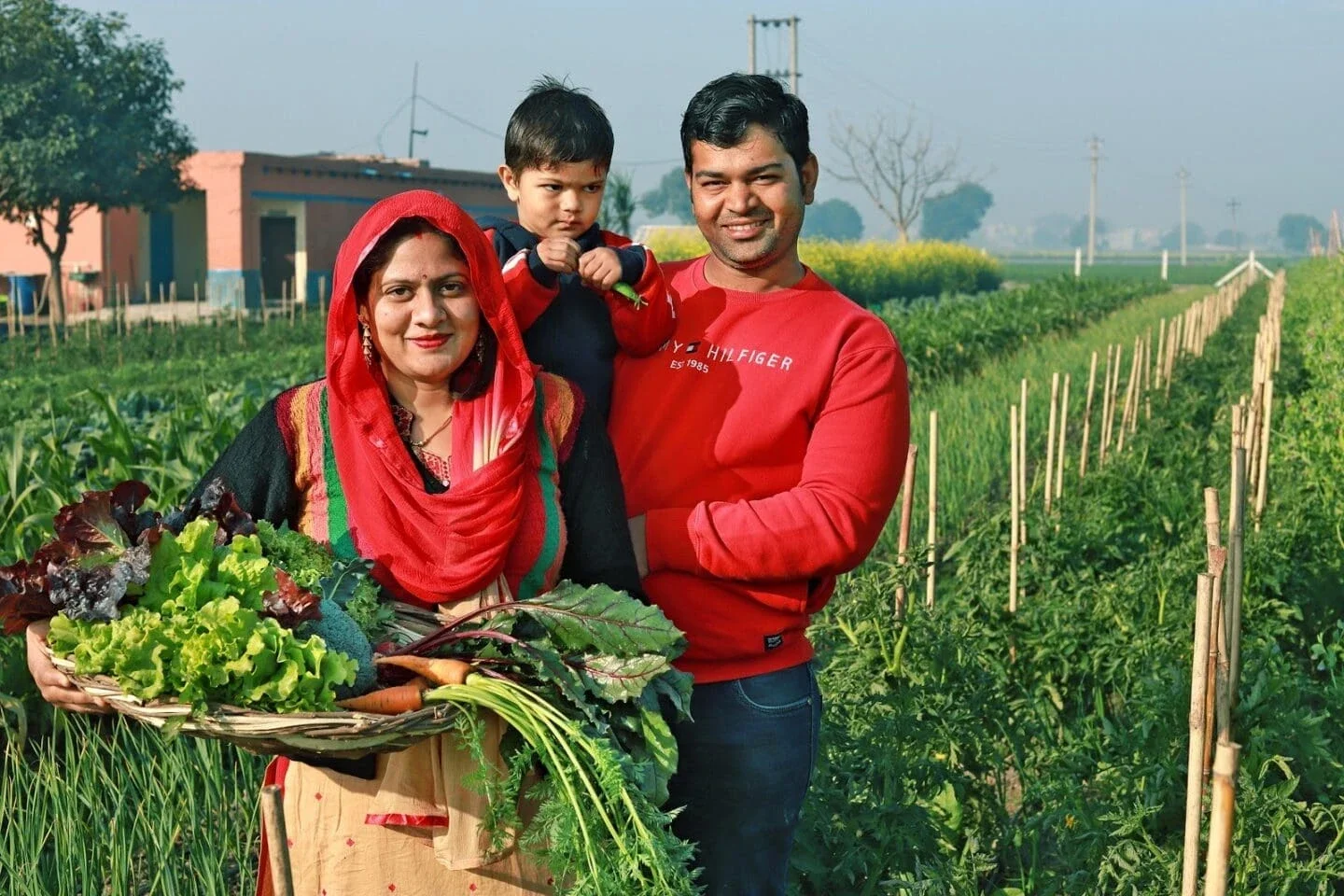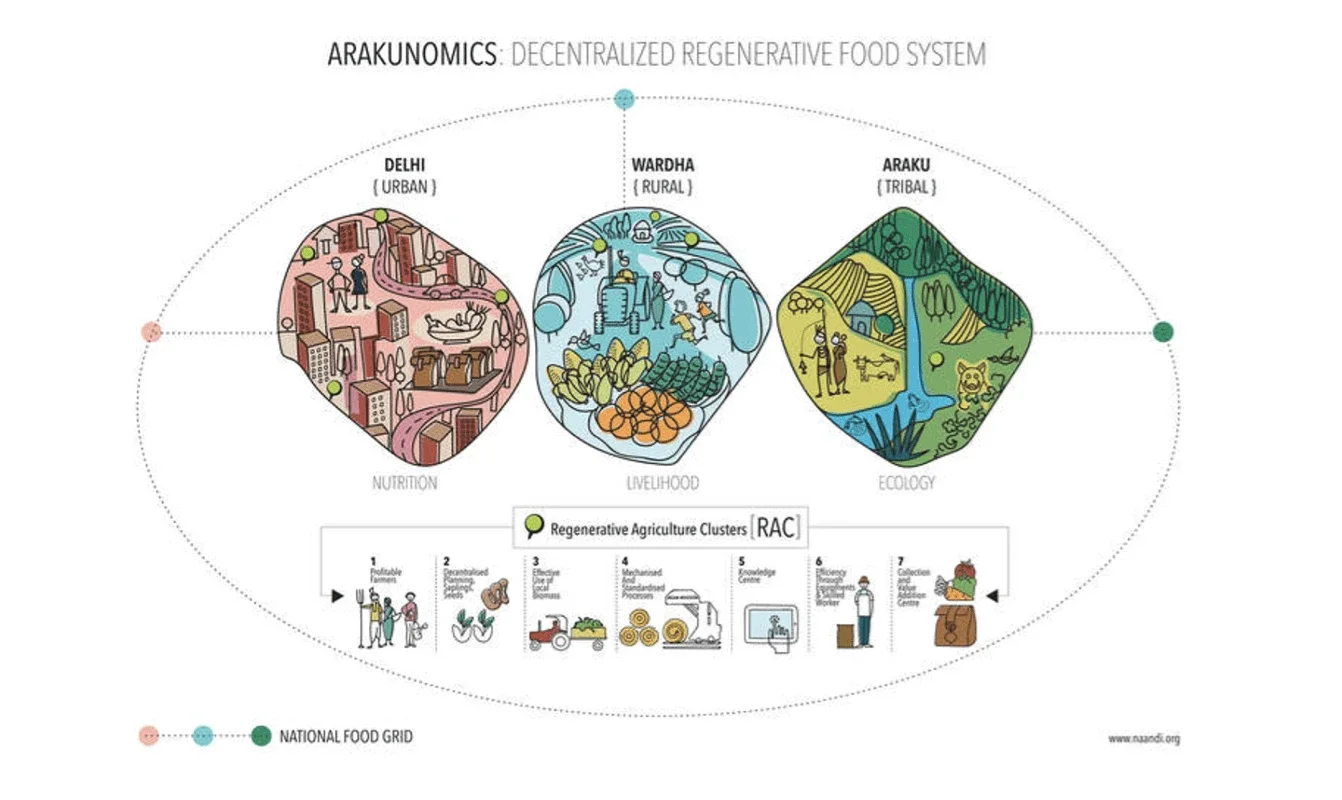This Vision aims to address India’s broken food system, showing how one model can shift the country’s current state from a near-crisis to one in which good food is affordable, bountiful, provides nutrition, and boosts immunity without damaging the environment.
In India, there is an increasing dependence on cheap ultra-processed foods and a lack of biodiversity in food production, resulting in poor nutrition. Farming has also become unprofitable, through a decline in soil fertility; increasing pest attacks; and the adverse impacts of the climate crisis.
The Vision is centered around three main principles, focuses on three vastly different regions, and addresses the challenges of three unique demographics. Targeting areas that represent the diverse geographical and topographical challenges of India, this Vision focuses on the tribal hilly region of Araku in the Eastern Ghats; the rural drought-prone lands of Wardha; and the metropolitan city of New Delhi.
The Arakunomics Vision showcases how by the year 2050:
- Terroir, a decentralized approach to farming that safeguards the environment, has become commonplace, with infrastructure, logistics, research and marketing that allows smallholder farmers to break out of abject poverty and become entrepreneurial in their approach.
- Proactive work on influencing policy has paid off and now, thanks to government support for farmers and community members, no person is food insecure.
- Fair practices govern food production and supply, and there is a focus on quality throughout the food chain.
- The food system is sustainable and regenerative, and human and planetary health are simultaneously promoted and safeguarded without detriment to one another.
While the Vision focuses on three regions of India, this strategy for a new future of food could be scaled to become a national solution.

Leading the Arakunomics Vision, the Naandi Foundation has worked with smallholder farmers in the several states of India over the past 20 years. The team believes that it is possible to ensure good food and nutrition for all, along with fair profits for farmers and robust protection of the environment.
Click here to explore the full Vision for Araku, Wardha, and New Delhi, India in the year 2050.
There are three cardinal principles to making our Vision a reality: Protecting the terroir (or environmental factors that affect a crop) while honoring the relationship between the land, farmers and their families; practicing regenerative agriculture, which makes the soil dynamically fertile and nutrient-rich; and creating shared value through fair distribution of profits across the value chain.

